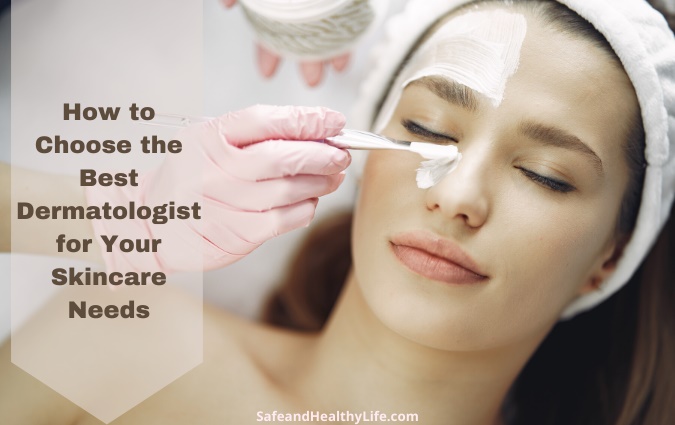
Facial insecurities, acne scars, and aging skin can all have a huge impact on our self-esteem. Help is out there though, and in recent years, the cosmetic dermatology industry has gone from strength to strength.
However, finding a good dermatologist can often seem overwhelming. So, let us discuss 3 guidelines to keep in mind that can help you to find the best dermatologist for your skincare needs.
1. Credentials Are Key
One of the most important factors to keep in mind when looking for a dermatologist is to ensure that the doctor that you are going to see is qualified.
All a doctor needs to start a dermatology practice is a medical degree, and so you might want to locate a certified physician that has passed rigorous exams through additional years of supervised study.
As a general rule, certification by the American Board of Dermatology is a sign of gold standard within the dermatology industry. You might even want to compile a shortlist of potential dermatologists in your area so that you can keep your options open.
For example, if you are based in Manhattan in New York, finding the best upper east side dermatologist might involve comparing a few choices.
As with any health-related treatment, it is important to know that your dermatologist has a full license or certification before visiting them.
Some practitioners in spas and beauty clinics call themselves dermatologists but are not actually accredited.
Correspondingly, if you are looking for a doctor to administer a specific dermatology treatment such as anti-aging options like laser resurfacing, anti-wrinkle injections and fillers, or skin peels, you can check that your doctor owns additional certifications in these areas.
The American Society for Dermatologic Surgery has plenty of resources that you can use to cross-reference the qualifications of your prospective dermatologist.
2. A Calm and Welcoming Atmosphere

When meeting the dermatologists on your shortlist for the first time, pay close to attention to the way that you are treated.
You should not feel rushed through your appointment, and the dermatologist should take time to focus on your personal concerns and questions.
Be sure to ask about treatment plans as well as any tests that might need to be completed before your procedure. Addressing these factors can help you to determine whether the dermatologist values you as a patient or simply sees you as another customer.
Similarly, your dermatologist should not aggressively push any products, treatments, or other remedies that are not specifically relevant to your individual concerns.
Put simply, sales pitches are a sign that the dermatologist might be more interested in your money as opposed to helping you to address your skincare concerns.
Additionally, some dermatologists might even allow you to sample products before you commit to full-sized versions.
Correspondingly, do not be afraid to ask about any sample sized tubes or sachets as these can allow you and your dermatologist to find what works best for your skin.
3. Aftercare
Provided that you have done your research and have been made aware of any risks or complications, it is unlikely that you will experience any side effects from any skincare treatments that you decide to complete.
That being said, there is always a chance that you might have an adverse reaction to treatment as the result of an allergy or general sensitivity.
Following on from a treatment you might even want to run some questions by your dermatologist to make sure that your skin is behaving as it should be.
Consequently, before undergoing any procedures it is fundamental that you are made aware of how to contact your dermatologist both within and outside of normal working hours.
The best dermatologists will provide you with information about how to contact them directly or how to speak to another qualified dermatologist about any emergencies outside of business hours as well as during evenings and on weekends.
Whether your dermatologist makes use of an answering machine service, an urgent contact number, or social media to manage your aftercare, it is always better to know your options before committing to any treatments so that you can address any queries or concerns quickly and effectively.
Ultimately, it is important to remember that not all dermatologists are the same. Therefore, finding one that is prepared to work with you to resolve your skincare concerns is going to require some research.
Nonetheless, by taking your time and weighing up your options, you can find the best dermatologist for your needs and enjoy the glowing, youthful skin you deserve.
Want to learn more about some of the ways that a dermatologist can address your skincare concerns?
Take a look at this useful guide to the most popular skincare treatments offered by dermatologists.
About The Author:
Kyle Moore is a South African writer with a love of all things natural! When he isn’t spending time wandering a forest, he’s finding ways to live his best life.




